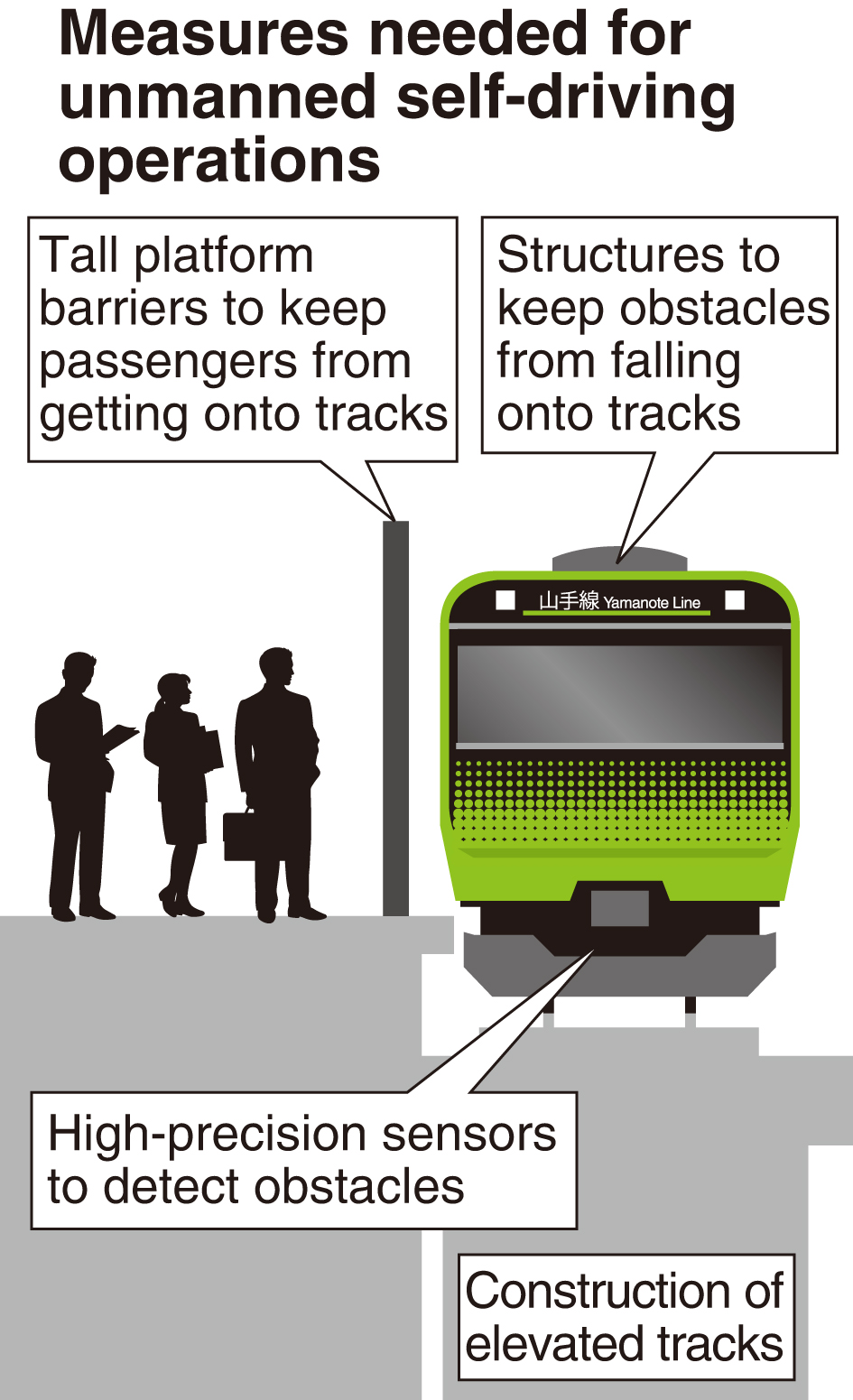Japan’s JR East planning driverless trains
TOKYO — East Japan Railway Co. (JR East) is considering the introduction of unmanned, self-driving operations on the Tohoku Shinkansen, Yamanote and other lines, The Yomiuri Shimbun has learned.
The company is aiming to manage an expected shortage of drivers and conductors in the future ahead of a mass retirement of veteran crew members. It has already set up a project team to accelerate technological development.
JR East is eyeing the development of a system to automatically run trains without a driver onboard. In the first stage, the aim is to have only a conductor onboard to deal with emergency situations. Eventually, the company plans to introduce completely unmanned self-driving operations.
In Japan, unmanned train services are operated on the Yurikamome Line using a new transport system designed to prevent passengers from gaining access to the tracks. The Linear Chuo Shinkansen line currently under construction by Central Japan Railway Co. is scheduled to be operated without a driver.
Existing JR and private railway lines have many crossings and other features, making it difficult to introduce unmanned train services from the viewpoint of preventing accidents. To realize such operations, it will need to take additional safety measures such as constructing elevated tracks, like those on the Yurikamome Line, and installing floor-to-ceiling platform barriers.
JR East plans to introduce the system on the Yamanote Line, which is not linked to other lines, as well as the Tohoku Shinkansen line, most of whose tracks are elevated. There is also a plan to introduce the system to loss-making local railway lines in order to keep costs down and maintain their services.
However, there still are many hurdles to clear. The company must develop a high-precision sensor that can detect obstacles on the tracks, as it is difficult to apply current technology to the self-driving system. It will also become necessary to develop equipment that detects abnormal noises and odors, which would currently be physically detected by crew members.
Legal system
Legal arrangements are also necessary. According to the Land, Infrastructure, Transport and Tourism Ministry, rules including ordinances on facilities and operating conditions, among others, based on the Railway Operation Law must be reviewed in order to introduce unmanned operations on existing lines.
The transport ministry is looking into the possibility of revising the rules. Kyushu Railway Co. is also taking into consideration the introduction of an automated train system.
A sense of crisis over future labor shortages is behind the push toward self-driving operations. In the case of JR East, the number of employees aged 55 or older was about a quarter of the total workforce as of April 2017. However, the number of employees aged between 45 and 54 accounts for only 10 percent of the total due to the privatization that resulted from the breakup of Japanese National Railways, which led to hiring curbs. As mass retirement is expected to get into full swing, securing crew members has become a crucial task in the railway industry.















